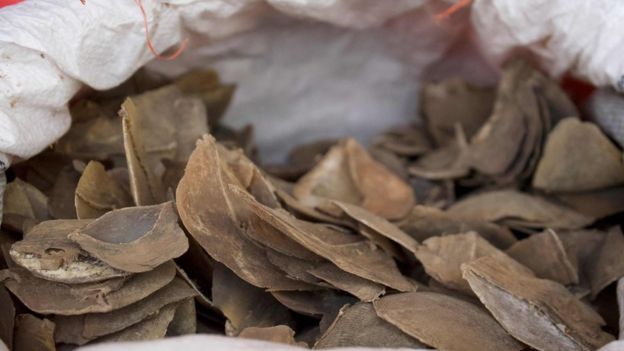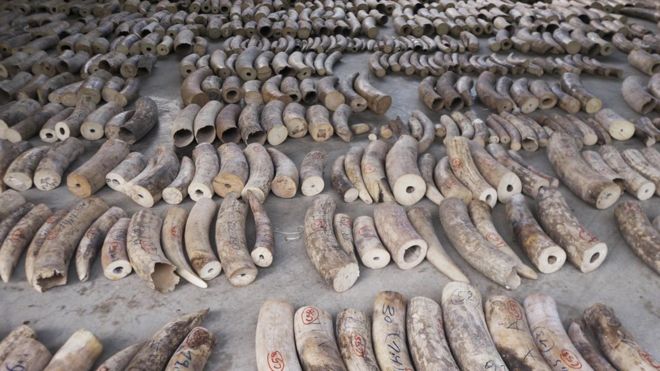Singapore seizes elephant ivory and pangolin scales in record $48m haul
Singapore authorities have seized 8.8 tonnes (8,800kg) of elephant ivory, its largest ever seizure to date.
Authorities estimate that the tusks, valued at $12.9m (£10.4m), have come from nearly 300 African elephants.
Some 11.9 tonnes of pangolin scales valued at $35.7m were also seized. It is believed to have belonged to about 2,000 of the mammals.
The illegal cargo was found in containers after a tip-off from China’s customs department.
Authorities discovered the animal parts on Sunday after they inspected a shipment from the Democratic Republic of Congo that was passing through Singapore on its way to Vietnam.
The containers were falsely declared to contain timber.
“Upon inspection, sacks containing pangolin scales and elephant ivory were found in one of the containers,” the National Parks Board said in a statement.
The seized pangolin scales and elephant ivory will be destroyed.
It is not the first time such illegal goods have been found in Singapore. The country has seized a total of 37.5 tonnes of pangolin scales since April this year.

“Singapore has always been inadvertently implicated in the global ivory trade for two reasons: its global connectivity, as well as the presence of a small domestic market where pre-1990s ivory can be legally sold,” Kim Stengert, chief communications officer for the World Wildlife Fund (WWF) Singapore, told Reuters.
Ivory is used for ornaments and in traditional medicine in Asia. Pangolin scales are also in high demand in Asia for use in traditional Chinese medicine.
The pangolin is said to be the most widely trafficked mammal in the world.
Under Singapore’s Endangered Species Act, the maximum penalty for illegally importing, exporting and re-exporting wildlife is a fine of up to S$500,000 ($370,000; £295,000) and/or two years imprisonment.





